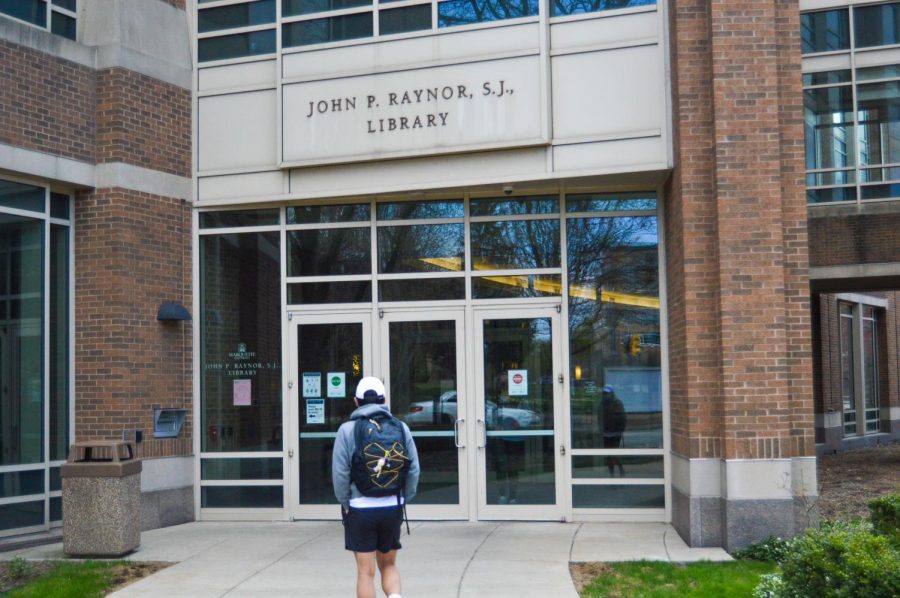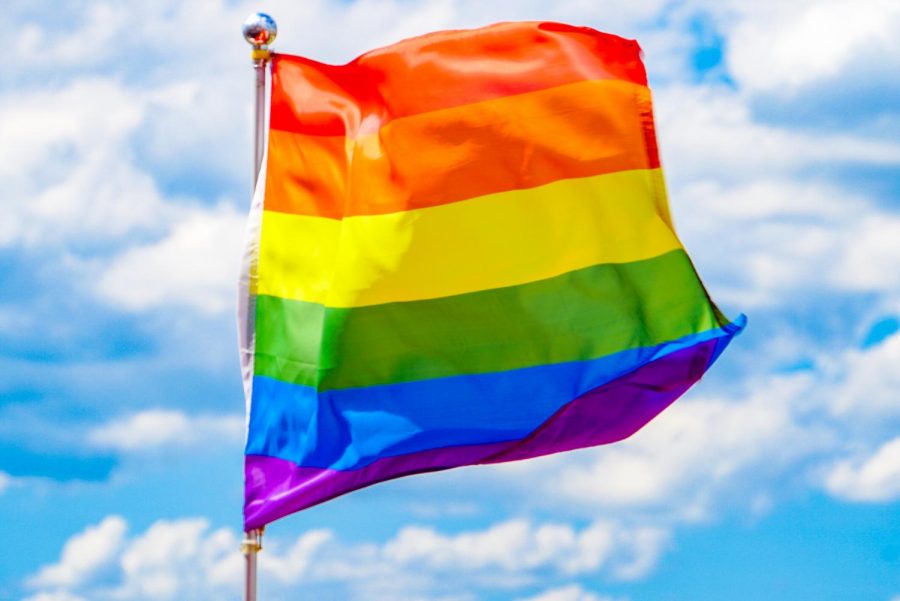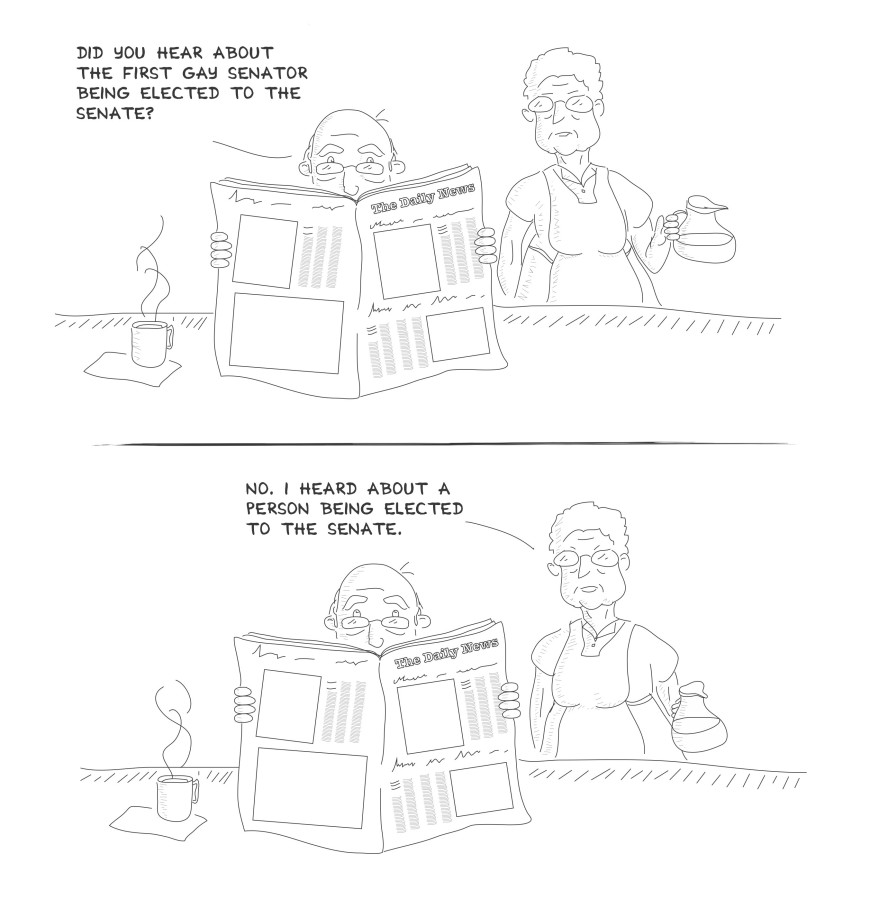Milwaukee and Madison earned high scores in a new rating system for LGBT inclusion in city law. The Municipal Equality Index survey, which was released last Tuesday, was conducted by the Human Rights Campaign, a civil rights organization for lesbian, gay, bisexual and transgender Americans.
The study rated 137 municipalities in every state based on 47 criteria. The municipalities studied included the 50 state capitals, the 50 most populous cities in the country, and the 25 large, mid-size and small municipalities with the highest proportion of same-sex couples, according to the Human Rights Campaign website.
Cities could score up to 100 points on the survey, with 20 bonus points for those cities that had exemplary programs that other states may not have. Points could be earned in three areas: state, county and city law. As long as protections were seen at a state or county level and protected the LGBT members of a city, the cities were given some points, according to the survey. Categories included non-discrimination laws, relationship recognition, municipality as employer, municipal services, municipality as law enforcement and municipality’s relationship with the LGBT community.
For more than a decade, the Human Rights Campaign has conducted its Corporate Equality Index, the national benchmarking tool on corporate policies and practices related to LGBT employees, and Healthcare Equality Index, which measures how the U.S. healthcare system treats members of the LGBT community.
While major population cities were effective for the study, Paul Guequierre, a spokesperson for the Human Rights Campaign, said the results cannot speak for entire states.
“It’s apples and oranges,” he said, “Some cities are very LGBT-friendly in states that are not, so it’s not fair to say Madison and Milwaukee’s policies speak for the rest of the state.”
Guequierre said it was not surprising that Milwaukee and Madison scored so highly in the study.
“Milwaukee and Madison represent as LGBT-friendly cities,” he said. “(The cities) have a lot to be proud of.”
Non-discrimination laws
This category evaluated whether the discrimination on the basis of sexual orientation and gender identity is prohibited in areas of employment, housing and public accommodations.
While Milwaukee County earned no points in this category, the City of Milwaukee earned the maximum possible points for non-discrimination laws based on sexual orientation and gender identity.
Emily Wright, president of Marquette’s Gender Sexuality Alliance, noted that the study showed gaps in anti-bullying legislation because no anti-bullying laws have been passed at the state, county or city levels.
“With the recent statistics regarding teen suicides and bullying in the LGBT community, I think that’s something the city should consider working on,” she said.
Relationship recognition
This category evaluated how laws handle the recognition of civil unions, domestic partnerships and domestic partner registries of LGBT couples.
Relationship recognition is considered a major issue in Wisconsin, where same-sex marriage has not been legalized. Domestic partnerships for same-sex couples, however, have been recognized in Wisconsin since Aug. 3, 2009.
While the City of Milwaukee earned no points in the domestic partner registry category, the municipality earned bonus points for having relationship recognition that preempted by state law.
Domestic partnerships in Wisconsin offer select rights to LGBT couples, including the ability to inherit a partner’s estate in the absence of a will or hospital visitation and the ability to access family medical leave to care for a sick partner.
While the recognition of domestic partnerships shows progress for the LGBT community in Milwaukee, the state of Wisconsin has not yet passed same-sex marriage legislation.
“I think the mindset of Wisconsinites is the same as the mindset of most of the country – there is something inherently sacred about marriage,” Wright said. “People want LGBT couples to have things like hospital visitation rights and adoption options, but they don’t want to change the definition of marriage.”
Municipality as an employer
Since municipalities usually have the sole responsibility of passing laws protecting their employees, this section was more heavily weighted than others.
Milwaukee earned full points for having ordinances for non-discrimination in city employment and domestic partner benefits, but the city lost points for not having equivalent family leave for LGBT employees, which, according to Wright, shows gaps in Milwaukee’s municipal laws for protecting LGBT employees.
Municipal services and programs
This category evaluated how inclusive city services and programs are to the LGBT community. Milwaukee earned full points for having a Human Rights Commission. It lost points for not having an Office of LGBT Affairs.
The city also gained points for focusing on particularly vulnerable groups of the LGBT community, including the elderly, youth, homeless and people living with AIDS.
HIV Services at the Milwaukee LGBT Community Center works with LGBT men who have been diagnosed with the disease and offers a series of multi-session workshops for individuals who want to talk about HIV prevention and intervention. The program also offers free rapid HIV antibody testing on an anonymous or confidential basis.
Municipalities as law enforcement
This section evaluated how attentive law enforcement is to the LGBT community. Milwaukee scored full points for having an LGBT Task Force and for reporting hate crime statistics to the Federal Bureau of Investigation.
In 2010, Milwaukee Police Department Chief Ed Flynn named Mary Hoerig, an openly gay member of MPD, as the LGBT liaison for the department, according to an article in the Wisconsin Gazette, an LGBT community newspaper.
Municipality’s relationship with the LBGT community
The Human Rights Campaign reported that Milwaukee’s leaders take an active role in protecting the LGBT community.
For its final score, the City of Milwaukee earned 85 of the possible 100 points in the study. The score points to an active engagement in LGBT issues and a strong relationship with the city’s LGBT communities. Eleven other cities earned a perfect score, including New York, Los Angeles, Philadelphia and St. Louis.
Guequierre said the Human Rights Campaign hopes the study prompts dialogue throughout the nation and encourages cities to look at laws.
“Hopefully, these cities will strive for perfect scores,” he said.
Wright said the report shows a growing trend of LGBT acceptance.
“It shows that there is a general trend of acceptance in the North East, the West Coast and parts of the Midwest, as well as in urban areas,” she said. “Our generation and the generation before us understand the need to protect LGBT civil rights.”





